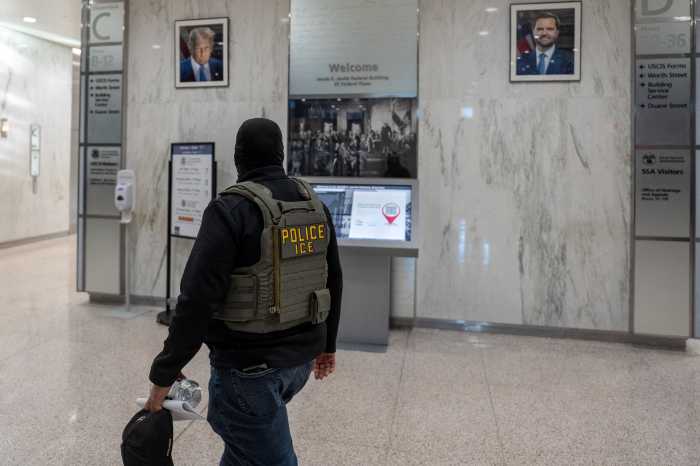BY ARTHUR S. LEONARD | The Maine Supreme Judicial Court, that state’s highest bench, in a December 6 ruling, affirmed a half-million dollar damages award to Edward Russell, who persuaded a jury he suffered employment discrimination based on his sexual orientation, which is a violation of the state’s Human Rights Act.
After four years with Continental Airlines, Russell joined ExpressJet as a supervisor in 2002, when that carrier began service in Portland. Russell was out on the job at both airlines, and ExpressJet’s initial general manager in Portland was also gay.
In late 2003, Russell learned that three women had filed a discrimination complaint against the company, alleging that ExpressJet only hired gay men for management positions. Soon after that, the Portland general manager left, and Russell provisionally took on his duties with the help of another supervisor. According to testimony offered at the trial, Russell “essentially ran the station and did an excellent job.”
However, on two occasions, the company’s regional director responded to Russell’s request to be officially named Portland general manager by saying it was “not going happen.” The second time, the regional director said the airline had just gotten out of “a boiling pot of water,” which Russell took to be a reference to the women’s complaint.
Russell helped train the new general manager in Portland, who called Russell his “right hand man,” saying he did a “fantastic job.” A new regional director, however, told the Portland general manager he would be better off if he fired Russell. The general manager declined to do so, but when he left on medical leave, Russell filled in on that job for several stints. When he renewed his request to be named general manager, Russell was told there was an ExpressJet policy of not promoting station staff to the general manager position, although it was not in writing.
In late 2006, Russell tried to speak with the company’s human resources department about what he viewed as the unfair promotion practices, but received no response. Meanwhile, a new general manager in Portland told another employee in Russell’s presence that the operation needed to “clean house” and that “homosexuals” are “an abomination in God’s eyes.”
After more unsuccessful attempts at promotions in Portland and elsewhere, Russell resigned in April 2007 and filed this discrimination claim.
A jury found in Russell’s favor and awarded total damages of $1.047 million, which the trial judge reduced to the statutory limit of $500,000, and ExpressJet appealed.
ExpressJet argued that Russell never formally applied for promotion and thus had never been formally rejected, but the court invoked the Supreme Court’s “futility exception” from 1977 that found despite an employee’s “unwillingness to engage in a futile gesture, he is as much a victim of discrimination as is he who goes through the motions of submitting an application.”
Justice Andrew Mead noted that in the absence of “widespread or pervasive discrimination by an employer,” the futility exception is “a narrow one,” but found in Russell’s case the evidence was clear. “The record contains sufficient evidence to support the jury’s finding that the statements and actions of ExpressJet’s management made it futile for Russell to apply for the general manager position,” he wrote.
The high court also rejected ExpressJet’s argument that the jury’s verdict, which included emotional distress damages, was excessive, pointing out that the record contained evidence Russell sought treatment for “stress, anxiety, and depression,” and that “his symptoms persisted when he returned to work and he had to stop seeking treatment because it was difficult for him to afford therapy and medication.”
The ruling on appeal was a clean sweep for Russell.



































